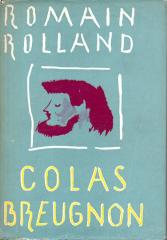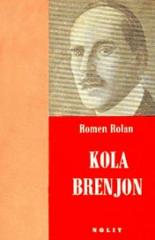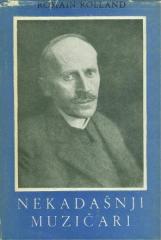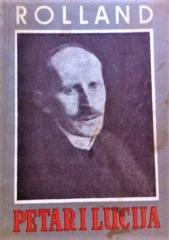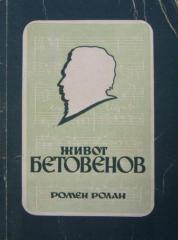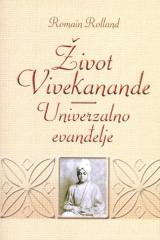Romain Rolland
Francuski pisac (Klamesi, 29. januar 1866 – Vezele, 30. decembar 1944), pohađao je Ecole normale superieure, diplomirao filozofiju, doktorirao muzikologiju na Sorboni, gde je osnovao katedri za istoriju muzike. Sakupio je drame u dva ciklusa: Pozorište revolucije (Le Theatre de la revolution, 1909), koji se sastoji od drama o Francuskoj revoluciji (npr. Vukovi - Les Lups, 1898; Danton, 1899) i Tragedije vere (Les Tragedies de la foi, 1909). Rolanova zaokupljenost herojskim došla je do posebnog izražaja u njegovim romantizovanim biografijama poznatih umetnika: Mikelanđela (Mikelanđelov život - Vie de Michel-Ange, 1906), L. N. Tolstoja (Tolstojev život - Vie de Tolstoi, 1911) i posebno L. (Betovenov život – Vie de Beethoven, 1903; Goethe et Beethoven, 1930; Nedovršena katedrala – La Cathedrale interrompue, 1943–45). Napisao je i biografije G. F. Hendela i H. Berlioza. Detaljnim uvidom u kulturni i politički kontekst istakao je značaj intuitivno-emotivnog doživljaja muzike. Njegovo najpoznatije delo je Žan-Kristof (1904–12), opsežan ciklični roman u 10 tomova. To je paradigmatski primer tzv roman reke (roman-fleuve), epski zamah u oslikavanju duhovne klime tog perioda (decenija pre Prvog svetskog rata) i poetski ton, sa romantično osmišljenim junakom – kreativnim genijem (muzičarem), koji je inspirisan ljubavlju prema životu u brojnim krizama. Posle burlesknog romana u duhu F. Rabelais Colas Breugnona (1919), vratio se romanu Reka delom u 7 tomova Začarana duša (L'Ame enchantee, 1922–33), sa junakinjom koja teži duhovnoj slobodi. Napisao je i brojne eseje; njegov pacifistički pamflet Iznad svetog (Au-dessus de la melee, 1914) izazvao je žestoke kontroverze. Od dvadesetih godina 20. veka intenzivno se bavi indijskom filozofijom i religijom. Introspektivna autobiografska proza Unutrašnji život (Le Voiage interieur, 1942), Memoari (Memoires, 1956), dnevnici i bogata prepiska (sa Š. Pegi, P. Klodelom, S. Frojdom, S. Cvajgom, H Heseom, R. Tagorom) . Dobitnik Nobelove nagrade za književnost 1915.
Titles in our offer
Colas Breugnon
Colas Breugnon je šarmantna romansa o životu u Burgundiji pre tri stotine godina. Reč je o „autobiografskom” romanu, priči koju je Kolas ispričao u prvom licu, osvrćući se na svoj pedesetogodišnji život, opisujući sve njegove radosti i tuge.
Kola Brenjon
Rolland ovim djelom, napisanim za vrijeme Prvog svjetskog rata, razornoj mržnji suprotstavlja radost življenja, humor i solidarnost. Kola je svojevrsni burgundski Falstaff ili Rabelaisov Gargantua – grub, ali plemenit, zemaljski, ali duboko human.
Nekadašnji muzičari
Knjiga daje pregled razvoja muzike sa posebnim akcentom na opersko stvaralaštvo.
Petar i Lucija
Život Betovenov
Prijevod ove knjige je prvobitno objavljen 1923. u izdanju beogradskog knjižara S. B. Cvijanovića, ali je cijela ta naklada zaplijenjena i uništena od strane Nijemaca tokom Drugog svjetskog rata.
Život Vivekanande / Univerzalno evanđelje
Knjiga o Swamiju Vivekanandi (1863.-1902.), jednom od najutjecajnijih hinduista modernog vremena, u kojoj Romain Rolland dokumentirano pripovijeda o njegovom životu i učenju.
